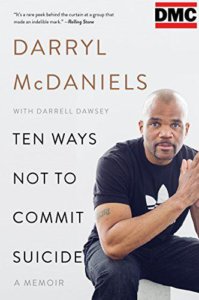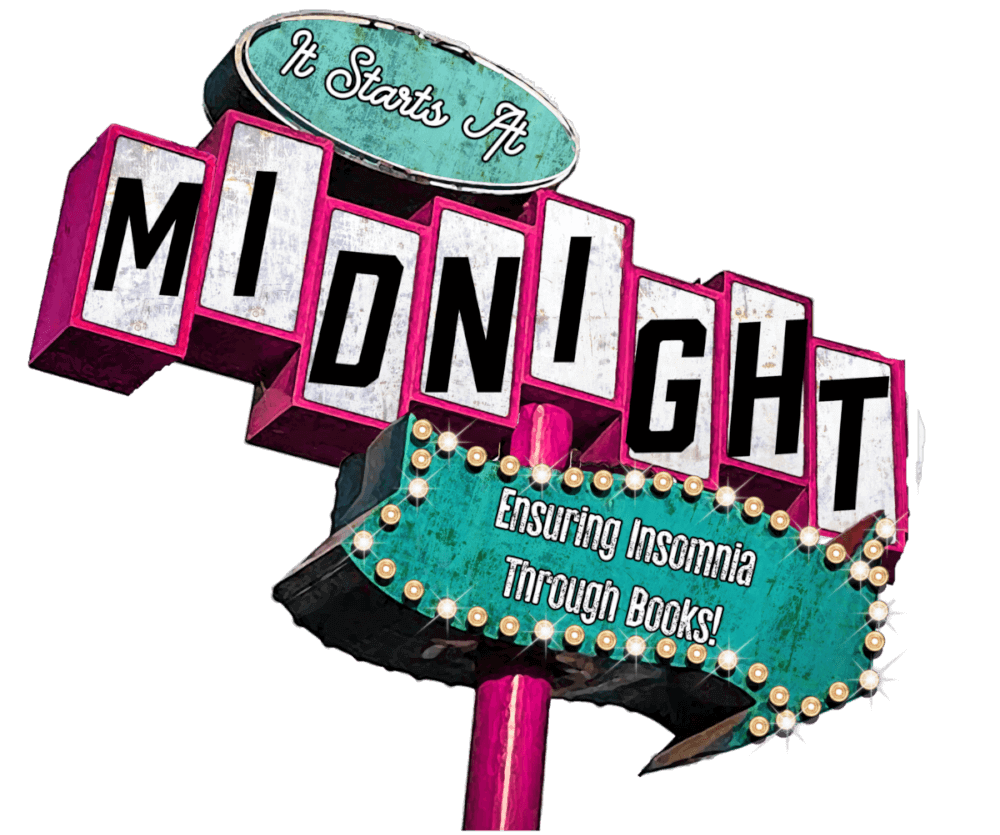
Welcome, lovelies! Today I have an amazing post for you from Katisha @ Reel Literature! She is here to talk about her experiences and the particularly harmful stigma associated with people of color who are dealing with mental illness. It’s a powerful, eye-opening, and moving post, and I am so, so excited to share this with you! Take it away, Katisha!
Katisha’s Post
Disproportionately Stigmatized
When I signed up to participate in Shattering Stigmas, I immediately thought about how the stigma of mental illness has affected me as a black woman in a community that is 20% more likely to experience mental health issues when compared to the rest of the population, but sees getting help for mental illness as a sign of weakness. It is not.
“Whether an illness affects your heart, your leg, or your brain, it’s still an illness, and there should be no distinction.” – Michelle Obama
The black community is not alone in this aspect. In 2010, 18% of the general population sought mental health treatment, while only 8.6% of Asian American adults sought the same services. Like the black community, the Asian community is often deterred by the negative stigma associated with mental illness and a lack of awareness in treatment options. However, they can also be deterred by language barriers. Seeking proper treatment has to be even more difficult when you are unable to communicate your issues and concerns with a health professional.
Life is Worth Living
“You can live well with a mental illness. It may take time, but it’s worth it. You deserve to live a happy and healthy life.” -Demi Lovato
Suicide is the 10th leading cause of death in the United States and the 2nd leading cause of death in people ages 10 to 24. In 90% of deaths by suicide, mental illness has played a major role. The numbers are even more alarming in the Native American population. Among adults between the ages of 18 and 24, Native Americans have higher rates of suicide than any other ethnicity, and 40% of Native Americans who have died by suicide are ages 15 to 24. In 2014, 10.3 out of 100,000 Hispanic men died by suicide. That number has remained consistent since 1999.
“Just because you think you’re worthless doesn’t make it true.” -Unknown
Life is hard and dealing with a mental illness makes it that more difficult. We may see suicide as the only option to stop the pain, but it is not. It is never the right option. We must seek out those who are willing to listen and help. Maybe it’s your best friend, a family member, or a volunteer at the National Suicide Prevention Lifeline. Part of shattering the stigma of mental illness in communities of color, is talking. My boyfriend freely talks about his 6 suicide attempts and the time he spent in a psych ward with friends and strangers alike. He is not afraid to let people know that he has a mental illness and to share the lengths he has gone through to find the proper treatment for his anxiety and depression. His ability to be open and stand in his truth is what I want for all of us. We must not suffer in silence, and we must support each other. NO…it’s not “all in your head”! NO…you don’t need to “just get over it”! NO…you can’t “pray it away”. NO…it’s not “a white people problem”! People of color deal with mental illness too.
“Ignore those who say just get over it. Healing is a process.” –Healthy Place
Looks Can Be Deceiving
While my boyfriend has been open about dealing with mental illness, I have been quite the opposite. It’s partly due to denial on my part because I didn’t “act” like a depressed person. “Depressed people stay in bed all day”, and I was always up and at ‘em. I was a stellar student who balanced a rigorous school day with a full plate of extracurricular activities. I graduated from college and even completed a Ph.D. program. I have been able to keep a full-time job, and I go out with friends whenever the opportunity presented itself. I have never said “No” to an opportunity. According to the laws of society, I am “successful”, but I often wanted to go to sleep and never wake up.
For years, I was filled with anger and sadness because I was dealing with the inner turmoil that comes with being a survivor of childhood sexual abuse. I didn’t want to talk about it because I blamed myself for what happened to me. It was my own shameful secret to bear alone. I felt worthless and wanted to die, but I was also driven to be productive at whatever task was placed in front of me. Being busy kept my mind occupied and my dark thoughts at bay, so most of my days were filled to the brim with things to do. I never considered that I was dealing with a mental illness because to past me, people with mental illness are white and have to take “crazy pills” or be locked up in a padded room. I was academically gifted and ran student government. It wasn’t until I started going to therapy about 5 years ago and finally started talking about these feelings and thoughts I’ve had for years that it was confirmed that I have PTSD, anxiety, and depression.
My mental illness went untreated for years because of stigma within my community that black people don’t get depressed or anxious, but it also went untreated because I did not project the stereotypical symptoms of someone with a mental illness because I have “high-functioning” anxiety and depression. We must always keep in mind that mental illness does not always look the way we think it should.
“Don’t fake being okay. You only hurt yourself. Be real with what you’re going through. Just don’t let it consume you.” -Unknown
Closing Thoughts
Thank you for letting me share part of myself with you. For anyone who has been touched by my story, I hope you have been inspired to take action. If you have an untreated mental illness, please do not let another day pass without seeking help. If you have a friend or loved one with an untreated mental illness, please encourage them to seek treatment and support them through the process.
It is essential that we continue having open and honest discussions about mental illness in order to eliminate the stigma associated with it, especially in communities of color where we must overcome additional obstacles to receive proper treatment. Mental illness affects people of all races, genders, and ethnicities, so it is essential that the available treatment options, research methods, and outreach programs serve that diverse group.
Additional Reading
In an effort to keep the conversation of mental illness in people of color among us book lovers, a few books on the topic are listed below. I am also giving away a copy of The Color of Hope, so enter for a chance to win! The giveaway begins on October 2nd and ends on October 15th. The winner will be announced on October 17th.
 A project shedding light on mental health in communities of color by sharing stories by those affected by mental illness. The contributors are people of African, Latino, or Asian descent who are living with or who are affected by loved ones with depression, bipolar disorder, borderline personality disorder, post-traumatic stress disorder, schizophrenia, and other conditions. Sharing these stories open up discussion around the topic and break the stigma and shame surrounding mental illness.
A project shedding light on mental health in communities of color by sharing stories by those affected by mental illness. The contributors are people of African, Latino, or Asian descent who are living with or who are affected by loved ones with depression, bipolar disorder, borderline personality disorder, post-traumatic stress disorder, schizophrenia, and other conditions. Sharing these stories open up discussion around the topic and break the stigma and shame surrounding mental illness.
Ten Ways Not to Commit Suicide: A Memoir by Darryl McDaniels
 Darryl McDaniels, one-third of the legendary rap group Run D.M.C., opens up about his emotional and psychological struggles and their impact on his life. He addresses the reasons he, like many others dealing with mental illness, considered suicide including feelings of loneliness, isolation, and alienation and lack of understanding and support from friends and family. By sharing his story, McDaniels offers insight to how even the most successful people can suffer from depression. He also offers information and inspiration in the hopes of saving the lives of others.
Darryl McDaniels, one-third of the legendary rap group Run D.M.C., opens up about his emotional and psychological struggles and their impact on his life. He addresses the reasons he, like many others dealing with mental illness, considered suicide including feelings of loneliness, isolation, and alienation and lack of understanding and support from friends and family. By sharing his story, McDaniels offers insight to how even the most successful people can suffer from depression. He also offers information and inspiration in the hopes of saving the lives of others.
Willow Weep for Me: A Black Woman’s Journey through Depression by Meri Nana-Ama Danquah
 A memoir of Danquah’s lifelong fight to overcome depression in a society that idealizes black women as strong, nurturing caregivers. She calls out to all women who suffer in silence with an inspirational story of healing and emerging from a world of darkness to reclaim their lives.
A memoir of Danquah’s lifelong fight to overcome depression in a society that idealizes black women as strong, nurturing caregivers. She calls out to all women who suffer in silence with an inspirational story of healing and emerging from a world of darkness to reclaim their lives.

We have TWO giveaways today! Don’t forget to enter Katisha’s incredibly generous giveaway RIGHT HERE!
And the tour-wide giveaway! Earn extra entries for following Katisha and leaving her some comment love, too!


Thank you for sharing your story. For someone who thought they knew a bit about depression I never stopped to think that a person can still be high functioning and getting on with life but still be suffering with a mental illness. A naive thought on my part.
This is such an incredible story and I know it can’t always easy to share, so thank you so so much for writing this Katisha. ❤️ This all needs to be said so much.
Thank you for sharing your story, and thanks for the book recommendations!
Thank you so much for sharing your story, Katisha. You and your boyfriend both sound like amazing, brave people. I recently read an article about black women not going to therapy because there weren’t that many therapists who looked like them and it definitely made me think! It’s true that you might relate more or feel more comfortable with someone who looks like you, or has a similar background to you.
-Lauren
Thank you so much for sharing your story, Katisha. We don’t talk about intersectionality enough, while it’s so so important that everyone has the correct information to seek help and get better. I wish you all the best.
What an amazing post. Great use of statistics and facts that always makes me really think.
What a fantastic post, Katisha! Thank you for sharing your story and encouraging others to seek help.
Love this so much. <3 There is definitely an added stigma on people of color who deal with mental illness (this is why intersectionality is so important!). I also completely agree with everything you said about how having a high-functioning mental illness can often make it lots more difficult to recognize you have a problem and to get help. Congratulations on seeking help and taking care of yourself! And thank you for sharing your story and encouraging others to do the same.
OMG! This post!!! I had listened to this podcast called Stuff Your Mom Never Told You, and they had an episode about African American people and mental illness. As an Arab American, I too can relate to this post so much. Because I immigrated to the US at a young age, I had a drive to prove myself. For years, I faked being okay despite all the signs pointing to something being “weird.” It makes me happy, though, to see such an open and frank discussion of mental illness and how it is not always text-book defined cases matching up. I feel like there’s this pressure for people of color to just “walk it off,” and like remember how “people your age a few years ago did x, y, z.” There’s a lot of shaming and silencing that goes on, too. Urgh. I love this post!
*Hugs every person involved with Shattered Stigmas*
Thank you for sharing. I appreciated reading about your thoughts and experiences.
Thank you everyone for your kind and beautiful words! I was tearing up a bit while reading the comments. I’ve been holding this pain and shame for so long, and I know that sharing my story will be beneficial to my healing process. I hope it will also help others who may be going through something similar.
Coming from the black culture myself, I can see why those statistics make sense. I feel like there is something in our culture which is really strong, if that makes sense? I feel like many (black women in particular but men do), as they fall under the people who racism and feminism apply to, they really have the morale that being a strong black independent woman is the only way through it. And there is something about that image which creates the idea that you can’t ask for help or be vulnerable at all. Which is really hard for people who in the end need help or are too afraid of seeming weak or unworthy by reaching out. Good discussion post.
I’m so glad that quite a few of these posts are talking about intersectionality, because it’s not discussed as often in conversations surrounding mental illness. The statistics are STAGGERING, and it sucks that on top of dealing with an MI, people in other cultures also have to face even more stigmas attached. They have even more obstacles to go through, and it’s important for others to remember that. Thank you for sharing your story, Katisha, and for bringing your perspective as a black woman into it. It’s SO hard opening up about our struggles, but I know that it’s helped others (it’s helped me), so it can be so worth it.
Thank you for sharing. I was aware that mental health held a certain stigma and that around the world it was treated differently but I hadn’t realised the statistics. It’s scary how mental health within different cultures is treated and how it puts people at risk. The fact that people don’t talk about mental health enough does mean people miss the signs in themselves because it doesn’t fit the stereotype we know so we think it’s something else. Hopefully, others hearing that outwardly you don’t fit the stereotype of depression in their mind will help people realise that you have to look deeper and someone else will be helped from this.
This sentence right here – We must always keep in mind that mental illness does not always look the way we think it should.
This is SO important for us to remember! Thanks for sharing your story, Katisha!
Great post.
Nice post!
Thank you for your post. Hunting accurate information is
among the biggest concerns for the younger generation.
Thanks for your article. Hunting accurate information is
one of the biggest issues for its younger generation.
I had to compose a similar (or it seems comparable, based on the information given) study newspaper back in 2015
when I was a pupil. Gathering the needed information was rather
hard and hard. But you managed to reveal the topic very accessible
and clear. It was interesting to refresh some things and discover out something new.
The article is nicely organized. I see the author has a
true knack for this subject. I like that subject, and I’m in constant
search of new bits and the latest news.
I truly enjoyed that one, because it is full of interesting facts and it is
a sort of easygoing article. I spent only a couple of minutes studying, and due to well-structured text,
so I understand it completely. Thanks!